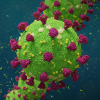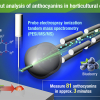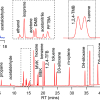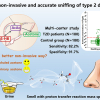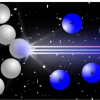Agilent Technologies has announced it is collaborating with Dr Steven Gross, a faculty member in the Department of Pharmacology at Weill Cornell Medical College, in New York, USA, to advance research in amyotrophic lateral sclerosis (ALS), also known as Lou Gehrig’s disease. Agilent will provide the latest mass spectrometry technology to support his research, working toward an understanding of how the most common form of this disease develops in the body.
Dr Gross, along with Dr Qiuying Chen, an assistant research professor of pharmacology at Weill Cornell, and Ben Schwartz, a student in the pharmacology doctoral programme at Weill Cornell Graduate School of Medical Sciences, is studying the most common form of ALS. ALS is a deadly and progressive neurodegenerative disease that affects nerve cells in the brain and spinal cord, and is also characterised by impaired metabolic control.
Sporadic amyotrophic lateral sclerosis (sALS) accounts for about 90% of all ALS cases and has no obvious genetic driver. Dr Gross and his collaborators—Dr Giovanni Manfredi, a professor of neuroscience in the Feil Family Brain and Mind Research Institute at Weill Cornell, and Dr Lorenz Studer, director of Sloan Kettering Institute’s Center for Stem Cell Biology—are investigating the molecular underpinnings of this form of ALS. The Agilent tools will empower the investigators to apply a multi-disciplinary-based approach to understanding the roots of this disease. Accurate-mass mass spectrometry will enable these researchers to test the hypothesis that fibroblasts express systemic metabolic markers that inform ALS.
“Translational research using a combination of biological disciplines—genomics, proteomics, transcriptomics, metabolomics—is an emerging trend in academia”, said Steven Fischer, market director for life science research in academia and government at Agilent. “Most researchers, however, do not know how to perform multi-omic analysis, and successful examples are needed. Agilent is working with the Gross lab at Weill Cornell to advance the multi-omics-based approach to disease research, using sporadic ALS to demonstrate the power of this method.”
“We’re very excited to ally ourselves with Agilent to extend our planned attack on the sporadic form of ALS”, Dr Gross said. “Our newly established scientific collaboration offers a rare opportunity to obtain and integrate multi-omics data, with the potential to yield an unprecedented understanding of the molecular basis for this devastating disease. We anticipate that this scientific work with Agilent will continue into the future as we apply multi-omics approaches to other poorly understood diseases with unmet clinical needs.”





